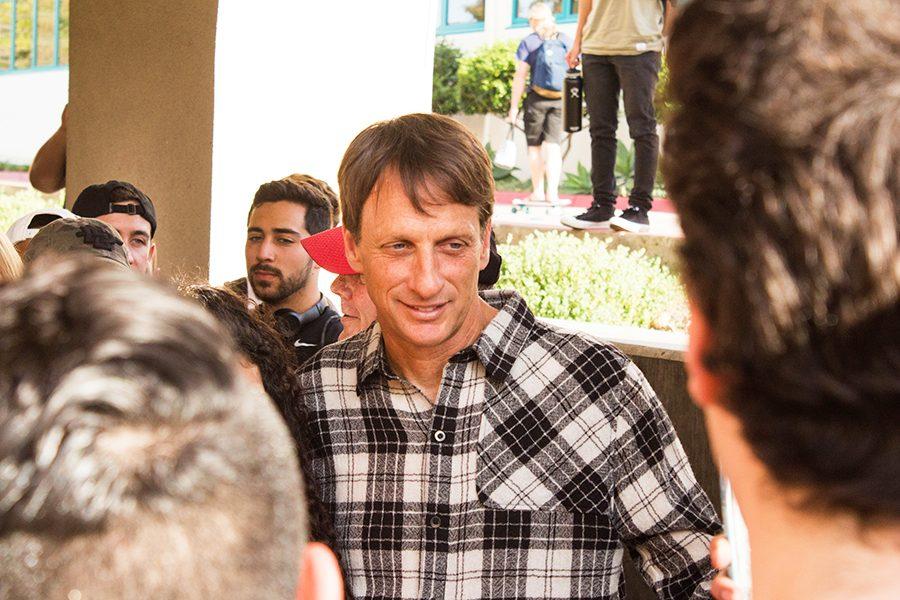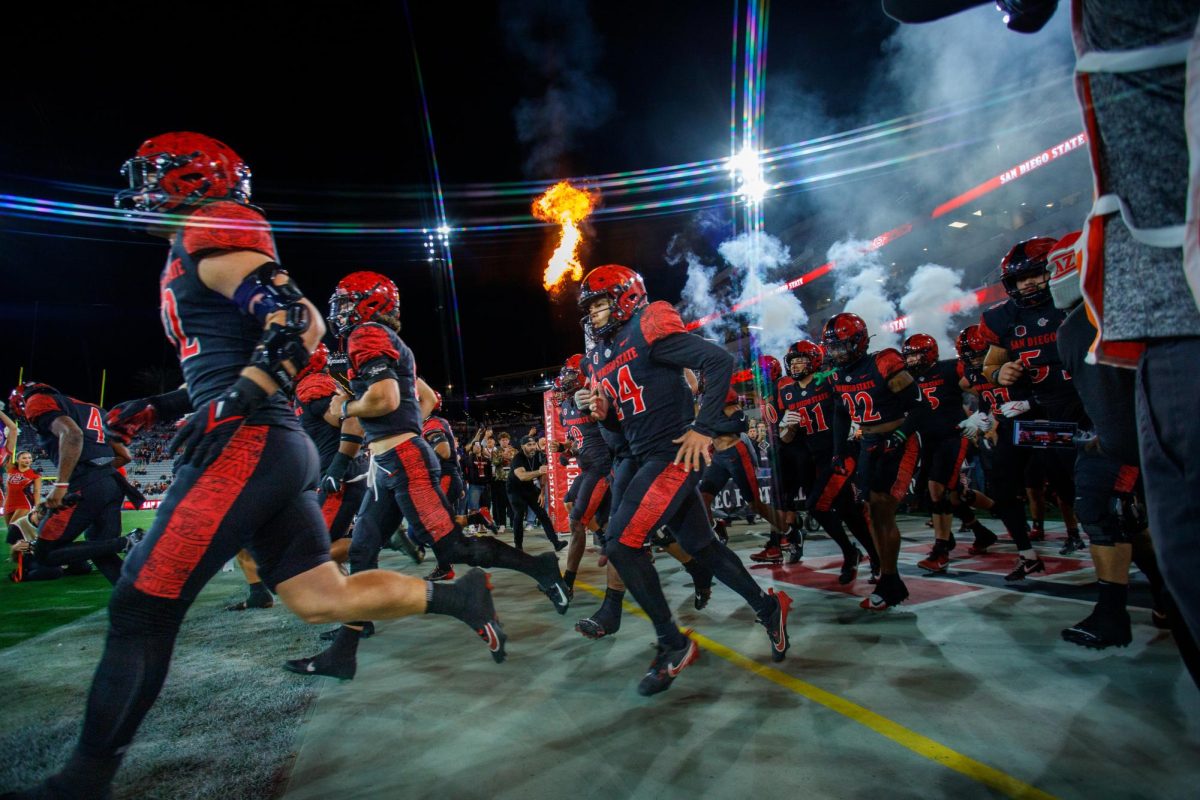Skateboarding has evolved into a global captivation ever since its rocky birth as an action sport.
There was the fabled Z-Boys skate team of Dogtown, a gang of surf rebels who carved emptied swimming pools with four-wheeled planks of wood.
There was the street-skating craze of the ‘90s, ultimately creating such skateboard celebrities as Ryan Sheckler and Rob Dyrdek. But above all, there was Tony Hawk.
A pioneer of the widely-adored action sport for many different reasons, Hawk came to San Diego State Tuesday, March 14, to speak about his entrepreneurial endeavors, life as a professional skater and, of course, to share a couple of wild stories.
“This guy has been a role model to me since I knew what a skateboard was,” said Cole Hildebrand, an undeclared sophomore who attended the event.
The Arts and Letters building was full of students and faculty alike, all fans of the skateboard mogul and all eager to hear his story.
“I was 17 years old, I was a senior in high school and I bought a house,” Hawk said.
At this point in his adolescent career he was already hiking to the peak of competitive skateboarding. Possessing a near-robotic precision when riding half pipes, it was both his technical mindset paired with his ingenious skate approach that pinned him as the next big thing.
Hawk’s innovative approach even had some people questioning him.
“People would call me a cheater because I would “ollie” into my “airs” on halfpipes,” Hawk said.
In spite of such accusations, this method set Hawk up for a successful career in a sport that was otherwise regarded as an ostracized hobby at the time. Hawk also spoke about a victory in 1983 where he decided he would focus on becoming the best he could be.
After winning the overall vert championship, that’s exactly what he did. Racking up competition trophies, starting his own skate company titled Birdhouse, and launching a video game series, Hawk proved to be a multi-faceted juggler of roles, leaping back and forth from businessman to extreme sports icon frequently.
“I wanted to challenge myself, and I managed to do that through more things than just skateboarding,” Hawk said.
But his biggest challenge was one that had a direct link to the world of skateboarding: landing the infamous 900, a trick where a skater would rotate two and a half revolutions whilst airborne after soaring off a ramp.
With the arrival of the 1999 X Games, Hawk set out to chisel this foreboding trick into the history books of skating, and was successful.
“That literally was on the front page of USA Today and it transcended sports highlights,” he said. “Suddenly I was tasked to be the ambassador of skateboarding.”
And although Hawk professed his initial foot-dragging to carry such a weighty responsibility, his laundry list of philanthropic expenditures since then says differently, appearing as endless as his arsenal of skate tricks.
One of his proudest humanitarian triumphs is the amount of community skate parks he has built over the last fifteen years, tallying a staggering total of 550 parks.
“It’s more about a place to hang out, share ideas and a place to be safe,” he said. “If you see a kid struggling at a skate park, go help them. I mean it starts there. It starts at the base level like that. I try to promote skateboarding in the global community.”
Aside from his charity endeavors, Hawk was ecstatic to at long last announce that skateboarding will be acknowledged as a sporting event at the 2020 Summer Olympic Games in Tokyo, Japan.
“I love the international skate scene. I’ve seen at first hand skateboarding in Cambodia,” he said. “And doing it in this DIY way, they’re creating their own brands and own stuff. That’s what’s most exciting for me.”
His parting words were advice to all college students in attendance that afternoon.
“I never got into skating to be rich or famous,” Hawk said. “You can’t get into whatever you’re interested in because you believe it is your ticket to fame and fortune. You have to love what you’re doing.”













